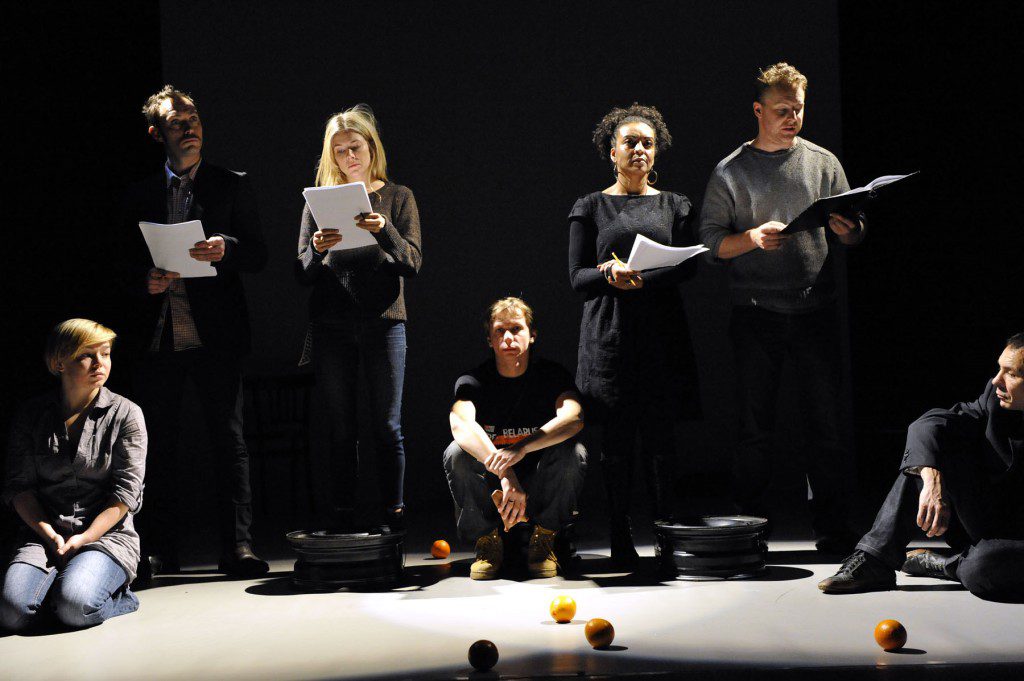11 Dec 2012 | Index Index, minipost, News
The British government’s Communications Data Bill is to be redrafted after the Deputy Prime Minister Nick Clegg said he would block the current bill.
The bill, which would give government agencies unprecedented access to email, web and phone traffic, has been described as a “snooper’s charter” by free speech and privacy groups.
Earlier today, a joint committee of MPs and Lords published a damning report describing the draft bill as “too sweeping”, and criticising the vague definitions of the powers given to the Home Secretary by the proposed law.
Writing for the Independent, MP Julian Huppert, a member of the Joint Committee on the Communications Data Bill, said: “After this report, there is absolutely no way that this Bill – with its incredibly wide powers and few safeguards – can possibly proceed.The Home Office has completely failed to show that it is needed, proportionate, possible or affordable. They must start from scratch.”
Index on Censorship has been heavily critical of the Communications Data Bill. In evidence submitted to the committee in August of this year, Index described the powers granted to the Home Secretary by the bill as “unacceptable”, and warned, “The decisions the UK Parliament takes on this bill willimpact on human rights both in the UK and beyond, not least in authoritarian states.”
11 Dec 2012 | Europe and Central Asia
On 8 December police entered the rented Minsk premises of the Belarus Free Theatre (BFT) and forced the actors and members of the 60-person audience to provide identity information.
The officers interrupted a performance of the BFT’s play Zone of Silence. After they had recorded the identities of everyone in the building, the show then went on.
The theatre troupe is used to police harassment. Saturday’s raid was the second police visit in 24 hours — the previous day police told manager Svetlana Sugako to prepare a list of the passport details of all BFT actors and staff.
The BFT is known for staging plays that reflect life in Belarus under the authoritarian rule of President Lukashenko, and for international campaigns protesting state repression and demanding the release of political prisoners. Index has worked with the theatre company over a number of years.
As the company is not licensed by the state, BFT performances must take place in secret. Prospective audience members receive text messages at short notice, directing them to spaces in the woods or temporarily rented houses. Audience members have been arrested, and actors frequently harassed. Nicolai Khalezin, the company’s Art Director who was forced to flee Belarus with his wife and fellow theatre member Natalia Koliada after the country’s rigged 2011 elections, told Index:
The police entering the theatre during the play is just the tip of the repressive iceberg as the most serious acts of repressions take place off stage. All our actors were sacked from state theatres, expelled from universities; most of them have been detained, arrested or included in travel ban lists by the Belarus authorities.
We are considered dangerous to Lukashenko’s regime as we are well-known abroad, and things we say about the real situation in Belarus are picked up by international media.
Mike Harris, Head of Advocacy at Index on Censorship watched the Free Theatre perform in Minsk in 2010:
The Free Theatre have been targeted because their artistic dissent is one of the most internationally recognised voices against Lukashenko’s regime. The regime is attempting to curtail one of the last remaining spaces for free expression in Belarus.
Belarus Free Theatre – Numbers from IndexOnCensorshipTV on Vimeo.
Andrei Aliaksandrau is Belarus and OSCE Programme Officer at Index. He tweets at @aliaksandrau
11 Dec 2012 | Americas, Mexico
Violent confrontations in Mexico City on 1 December between police and thousands of demonstrators protesting the swearing in of President Enrique Peña Nieto continue to reverberate, as human rights and media protection organisations grapple with how to guide protesters to exercise their fundamental free speech rights.
Protesters took to the streets to express their unhappiness at the return of Peña Nieto’s Institutional Revolutionary Party (PRI), back in power after a 12-year interval. Windows were broken and firebombs thrown and tens of protestors were arrested. The Federal District Human Rights Commission has accused the police of making arbitrarily arrests and suggested that there is evidence that four protestors were tortured by police officers.

Thousands protest against Mexico´s new president on 1 December (Rodrigo Jardón – Demotix)
The Mexico City chapter of the freedom of expression group Article 19 has issued a safety protocol for those wishing to continue attending street demonstrations. Called a Guide to Freedom of Expression for Demonstrations, Protests and Social Disturbances, the report gives practical advice to both reporters and citizens. It suggests protesters and reporters know who organised a march and why. It also reminds journalists and others to know the proposed routes a demonstration will take and to identify easy escape routes in case of trouble. For citizens, the guide emphasises the need to understand that, while the right to protest is fundamental, they should not respond aggressively to police during a demonstration.
The protocol comes as Mexico City learned that dozens of the 69 demonstrators arrested on 1 December — including two journalists — were released by Mexican authorities because of lack of evidence that they had engaged in violent acts. Several organisations, including Amnesty International, claimed that Mexican police used “excessive force” to curb the demonstrations, which turned violent and left demonstrators and police wounded, and local businesses damaged and looted. In a statement released on 4 December, Reporters Without Borders said:
…the release of the photographers must not eclipse the fact that the president’s inauguration was marred by the use of heavy-handed police methods to suppress the right to demonstrate and, in some cases, the right to report the news.
11 Dec 2012 | Digital Freedom, News, United Kingdom
 The coalition’s plan to store information on every citizen’s use of email, the web, and phones have been dealt a serious blow by a parliamentary committee report. Padraig Reidy reports
The coalition’s plan to store information on every citizen’s use of email, the web, and phones have been dealt a serious blow by a parliamentary committee report. Padraig Reidy reports
(more…)



